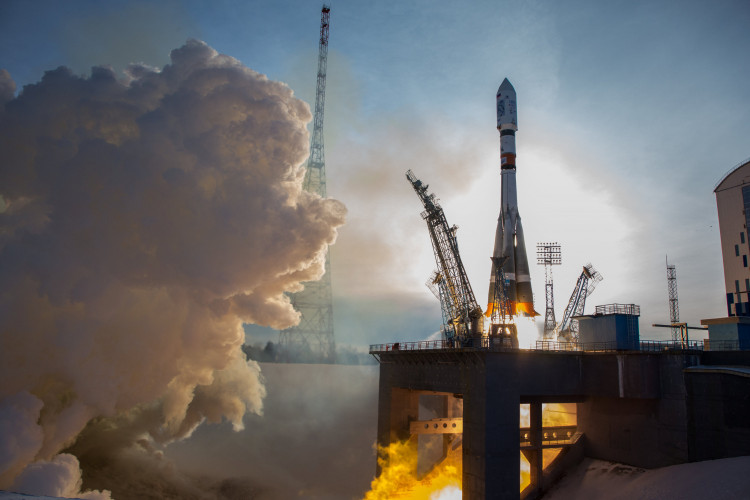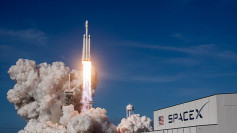In response to Russia's invasion of Ukraine, the U.K.has imposed new trade sanctions on the country, including a ban on all space-related exports.
On Wednesday (Mar. 9), British Foreign Secretary Elizabeth Truss announced new space export penalties alongside tougher aviation sanctions, including new powers to detain Russian planes. According to a statement, the space-related sanctions include a "ban on the export of aviation and space-related goods and technology, including technical assistance."
The ban on space exports covers all related services, including insurance and reinsurance, U.K. officials said.
"This means cover is withdrawn on existing policies and UK insurers and reinsurers will be unable to pay claims in respect of existing policies in these sectors," wrote in the statement.
The additional trade sanctions imposed by the U.K. are intended to ramp up the already severe economic sanctions imposed on Russia by numerous countries following President Vladimir Putin's order to invade Ukraine on February 24. They join harsh penalties imposed by the United States, which President Joe Biden has stated will hamper Russia's space program.
"We will continue to support Ukraine diplomatically, economically and defensively in the face of Putin's illegal invasion, and work to isolate Russia on the international stage," Truss said in the statement.
International political tensions are at an all-time high following Russia's invasion of Ukraine.
The U.S. and what is now Russia started out as rivals in space, but as time went on, the two countries began to cooperate. During a test flight in orbit in 1975, during the Cold War, the two countries partnered on the Apollo-Soyuz Test Project, a nine-day journey in which an Apollo spacecraft carrying NASA astronauts mated with a Soyuz vehicle carrying Soviet cosmonauts.
While this trip drew the two countries closer together, the U.S. and Russia soon began cooperating on a far larger scale, particularly in relation to the International Space Station program and sharing rides to the station aboard the Russian Soyuz spacecraft.
The U.S. and Russia have since partnered in space, but Russia's current move raises concerns about the NASA-Roscosmos relationship.
The European Organization for Nuclear Research (CERN), the science agency in charge of the Large Hadron Collider, will also refrain from future scientific collaboration with Russian scientists after a Ukrainian scientist requests a halt to any Russian science collaboration due to Russia's ongoing invasion of Ukraine.
CERN made the announcement during a meeting of the CERN Council on Mar. 8. Ukraine is an associate member of CERN, but Russia is not an official member.




